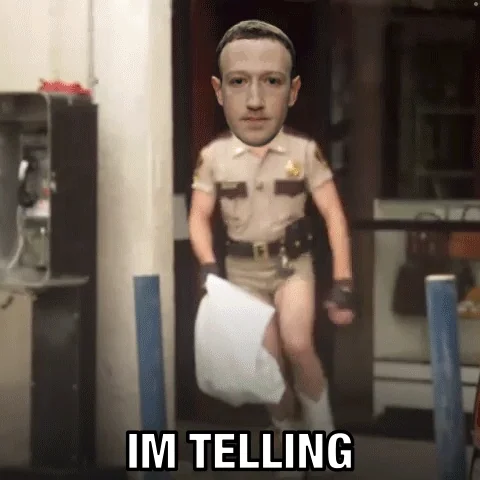Originally published at: The Daily Show explains the Metaverse | Boing Boing
…
It’s VR Chat for normies filled with boring corporate art meant to distract Meta investors about the fact that Facebook has been bleeding young users because they don’t want to interact with elderly racists.

Neal Stephenson’s version was a lot more interesting and fun than this one. The metaverses being foisted on us by Zuck and his ilk is designed not by cool and weird hackers but by Libertarian cryptobros who want to financialise every aspect of human existence into a bunch of walled-garden pyramid schemes with them at the top.
The fact that the technology isn’t up to delivering on the hype is only made more pathetic by the staggering lack of imagination on the part of the greedpigs designing this. Given the opportunity to create whatever environment they want in which to hold a virtual business meeting, they proudly present … a reproduction of a bland conference room.
I can’t find a video link but there was a brilliant parody commercial on Saturday night live back in the 90s for a “virtual reading“ system which demonstrated exactly how terrible VR interfaces are for everyday tasks.
Isn’t that VRChat?
Unless you consider twerking catgirls as corporate art then it isn’t
Penises have yet to rain from the sky, so MSFT is holding off on opening an office?
Oh man, is this ever true. It hard to overemphasize just how anodyne, milquetoast, stultifying, and boring Meta’s “Metaverse” is, from the perspective of both design and function. From the unified bland aesthetic of the purposely-normie avatars (weirdness not allowed - no freak flags will fly in the Metaverse!) to the “activities” available, I can’t imagine why anyone would spend any time there, unless they’re there to engage in virtual groping and sexual harassment.
Ronny Chieng is pretty hilarious.
I work in an industry where 3D visualization is sometimes important for large, complex projects that require a lot of collaboration. VR proponents might expect that such work would be perfect for VR, but other than a few whiz-bang demos for VIPs and the press, my company almost never uses it. There’s ordinary Autodesk applications that allow folks to fly through a structure and look at how components fit together from different perspectives without strapping on a dumb headset.
Hard to say what the future of entertainment might have in store for it, but actual work is almost always better done in person or with a flat screen.
Metaverse just seems like an ultra-santized Second Life.
where’s the fun in that?
You’ve pretty much nailed it.
Yeah, the studio where I work does scientific visualization for public consumption, and we’ve thought long and hard about use cases for VR. We haven’t really been able to identify any in our context, either.
Yeah. Just surveying all the projects that call themselves “metaverses,” about half seem to be outright scams and about half are just video games inexplicably calling themselves “metaverses,” with a smattering of corporate attempts to recreate Second Life (or Roblox), but crappier, in between. So half of these efforts will eventually crash and burn by their very nature and the other half are just poor imitators of things that already existed given a nonsense re-branding (that probably won’t last because the label’s meaningless).
And that was a dystopian vision, ultimately!
Also, these various fictional “metaverses” don’t actually make sense as an interface for the internet (you really don’t want the limitations of physical space in that kind of information space, never mind the issue of having a consistent identity across various sites - which is one of the main points of a “metaverse”). Which these corporate efforts to make them real seem to miss out on…
Pretty limited use cases even for games.

“Ronnnnny Chienggggg!”
Who said anything about games? I’m thinking more the other type of entertainment that lonely men frequently engage with. It gave us the advent of home video and continues to be a substantial fraction of all internet traffic, after all.
I never understood the fascination that fanboys and speculators had for VR. It’s just a gimmick, like 3D movies. I’m certain it’s pretty cool when you first try it out: ooh, I’m in an uncanny computer simulation, but after a minute and you get used to it, it’s just a horribly rendered fake reality but now with 3D advertisements!
Neal Stephenson’s version was a lot more interesting and fun than this one.
Even when I read the book (3 times) it was immediately clear to me that it was just a cleverly thought-out fiction.
I’m pretty sure you’ll need drugs to get the full effect of the metaverse.

